
09 December 2025
Metabolic Biomarker Triad: Clinical Relevance of Cholesterol, Glucose, and Triglyceride Testing in the Early Detection of Chronic Diseases
Cholesterol, glucose, and triglyceride testing form an essential metabolic biomarker triad for early detection of cardiometabolic disease risk. Integrated analysis of these three parameters provides a comprehensive overview of a patient's metabolic status, supporting diagnosis, risk stratification, and therapy monitoring. In healthcare facilities, the use of efficient testing devices such as the MULTICARE IN Meter can optimize community health screening and evaluation.
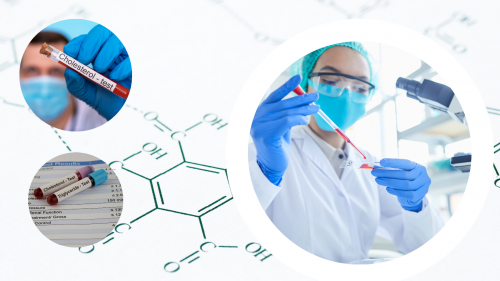
28 November 2025
Remnant Lipoproteins as Superior Predictors of Heart Disease Compared to LDL-C: 2022–2025 Update
Lipid science has shifted from focusing solely on LDL-C to a more comprehensive view including remnant lipoproteins. RLPs are proven to be more atherogenic and more predictive of heart attacks, especially in patients with diabetes, obesity, and high triglycerides. Routine comprehensive lipid profiling—supported by the highly accurate, fast, stable, and user-friendly Sinocare iCARE-2100 Lipid Profile Reagent Kit—helps healthcare professionals detect risks earlier

28 October 2025
What’s the Difference Between Cholesterol & Triglycerides? Why Can Both Cause Stroke?
Understand the Difference Between Cholesterol and Triglycerides to Prevent Stroke Early
Although both are classified as blood lipids, cholesterol and triglycerides have different functions and effects on health.
• Cholesterol plays an important role in the formation of hormones, vitamin D, and cell membranes. However, high LDL levels can cause plaque buildup in the arteries.
• Triglycerides, on the other hand, are the body’s main energy reserve, formed from excess calories. When levels are too high, triglycerides can trigger inflammation and damage to blood vessels, worsening the effects of bad cholesterol.
In other words, high cholesterol tends to block blood flow, while high triglycerides accelerate vessel damage and inflammation. The combination of both significantly increases the risk of stroke.
Therefore, maintaining balanced cholesterol and triglyceride levels is not just about diet—it’s about adopting an overall healthy lifestyle: regular exercise, controlled intake of fats and sugars, and routine monitoring.
For early detection and home monitoring, you can use MulticareIn, a practical solution to measure:
✅ Total Cholesterol
✅ Triglycerides
✅ Blood Glucose

10 April 2025
BOUNCE BACK AFTER EID: SIMPLE AT-HOME CHECKS FOR A HEALTHIER YOU
Eid al-Fitr is a cherished time for joyful gatherings, spiritual reflection, and enjoying a variety of delicious dishes. From savory meals like rendang and opor ayam to sweet treats and cookies, it's common for dietary habits to shift during the celebration—often involving foods high in fats, sugars, and purines. While indulging is part of the tradition, it can pose temporary metabolic challenges.
To support recovery and restore balance, it's highly recommended to monitor your blood sugar, cholesterol, and uric acid levels—especially in the weeks following Eid.

02 January 2025
THE DANGERS OF HIGH BLOOD LIPIDS AFTER NEW YEAR CELEBRATIONS
After indulging in delicious food during New Year celebrations, the risk of elevated blood lipid levels, including cholesterol and triglycerides, becomes a major concern for many people. High blood lipid levels can trigger serious health problems such as heart disease, stroke, and metabolic disorders. This article discusses the causes of post-holiday blood lipid spikes, their impact on health, and preventive measures.
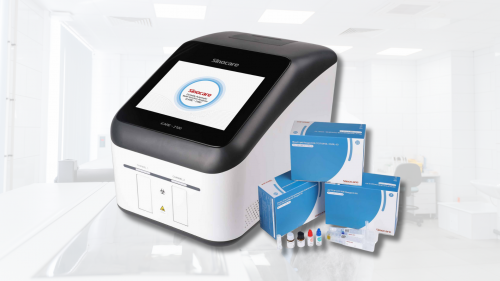
19 November 2024
SINOCARE iCARE-2100 MULTI-FUNCTION ANALYZER: A REVOLUTION IN FAST AND ACCURATE MEDICAL ANALYSIS
In today’s world, the demand for medical devices that are practical, fast, and multifunctional is ever-growing, especially for early diagnosis and regular patient monitoring. Amid this progress, Sinocare introduced the iCARE-2100 Multi-Function Analyzer, a device designed to deliver precise and instant diagnostic results. Tailored to meet diverse clinical analysis needs, the iCARE-2100 offers an efficient solution for medical professionals and clinics that require a portable device for multi-parameter measurements.
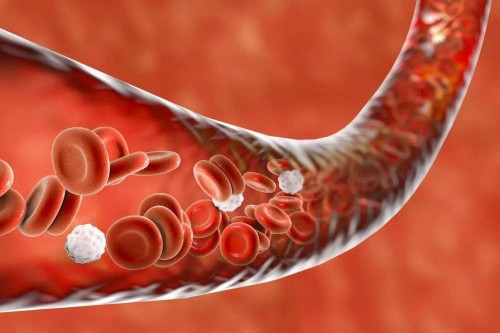
21 May 2024
WHAT IS A PHOTOMETER AND ALL ITS ADVANTAGES
A photometer is a laboratory instrument that can measure the concentration of chemical substances in biological samples using the principle of photometry. There are three measurement methods: kinetic, fixed-time, and end-point. The main advantages of a semi-automatic photometer include flexibility, ease of use, lower cost, scalability, and easy maintenance. This device is ideal for medium-sized laboratories and hospitals with a limited number of patients.

07 April 2024
HEALTHY COMMUNITIES, HEALTHY WORLD: HEALTH TRANSFORMATION ON WORLD HEALTH DAY
Every year, World Health Day is commemorated as a significant moment to highlight the global challenges faced in efforts to create healthier communities. With the theme "Healthy Communities, Healthy World," World Health Day emphasizes the importance of cross-sector collaboration to achieve inclusive and sustainable health transformation.
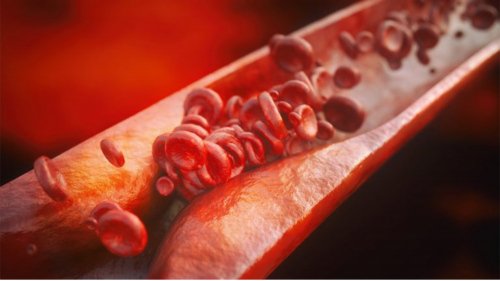
29 February 2024
HEALTH SECRETS: WHY LDL AND HDL CHECKS CAN SAVE YOUR LIFE!
Routine examination and monitoring of LDL and HDL levels is very important, because both have vital functions in the body's lipid metabolism. An imbalance in the levels of both can increase the risk of atherosclerosis, heart disease and stroke. Therefore, regular examinations are necessary to detect changes in the lipid profile and timely taking of preventive measures.
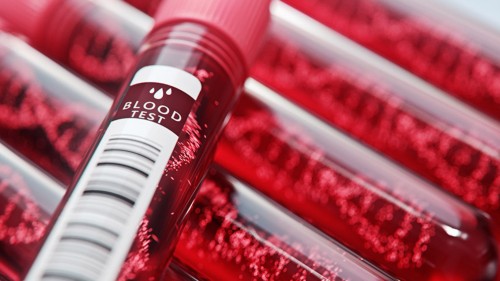
19 February 2024
HEALTH KEY: WHY IS BLOOD CHEMISTRY TESTING IMPORTANT?
Blood chemistry testing is a highly important medical procedure, delving into the complex chemical composition of blood to measure key parameters such as liver function, kidney function, glucose levels, cholesterol, and electrolytes in the blood. With its ability to detect diseases, monitor medical conditions, evaluate organ function, and assess treatment effectiveness, this test serves as a cornerstone in modern healthcare.

29 October 2023
THE IMPORTANCE OF EARLY DETECTION AND SWIFT ACTION IN STROKE CASES
Stroke is a serious medical condition that can occur suddenly and be life-threatening. Early detection and prompt action are crucial in improving prognosis and minimizing brain damage caused by a stroke. This article will discuss why early detection and swift action are paramount in cases of stroke.

28 August 2023
RAISING AWARENESS OF THE IMPORTANCE OF METABOLIC HEALTH IN CHILDREN
Metabolism, a complex process that occurs within the body, plays a central role in converting nutrients into the energy needed for growth, development, and bodily functions. During critical stages of growth and development, such as childhood and adolescence, metabolic health has significant long-term implications for children's futures. Maintaining good metabolic health during these periods can help prevent serious health risks later in life, such as obesity and type 2 diabetes.

17 July 2023
MAINTAINING FAMILY HEALTH THROUGH REGULAR HEALTH CHECK-UP
Maintaining family health is crucial for achieving a quality and harmonious life. One important step to take is regularly conducting health check-ups. Periodic health check-ups help in the early detection of potential health issues before symptoms arise, allowing for early intervention. They also aid in preventing the spread of communicable diseases among family members. Furthermore, health check-ups promote awareness of healthy lifestyles and reduce long-term healthcare costs.

28 June 2023
MAINTAIN YOUR CHOLESTEROL AND TRIGLYCERIDE LEVELS AFTER EID AL-ADHA: BEING ALERT TO LIPID METABOLISM DISORDERS
This article emphasizes the importance of blood cholesterol and triglyceride testing after Eid al-Adha to stay alert to lipid metabolism disorders. Eid al-Adha celebrations often involve consuming delicious food, especially meat, which can negatively impact lipid metabolism balance in the body. Blood cholesterol and triglyceride testing provides information about the risk of heart disease and helps doctors provide appropriate recommendations.

14 June 2023
A HEALTHY FAMILY BEGINS WITH PROPER BODY METABOLISM FUNCTION EXAMINATION
The article stresses the importance of routine examinations to monitor metabolic function, which helps identify potential health risks and underlying issues. It emphasizes the role of balanced nutrition and physical activity in maintaining a healthy weight and controlling blood sugar levels. The inclusion of stress management as a crucial aspect of proper metabolism is highlighted. Overall, the article serves as a useful starting point for understanding the importance of proper body metabolism in maintaining a healthy family. Further expansion and inclusion of specific details would enhance its educational value.

05 May 2023
IMPROVING MATERNAL AND CHILD HEALTH SERVICES WITH POCT TECHNOLOGY
This article discusses how point-of-care testing (POCT) technology can improve maternal and child healthcare services by providing fast and reliable diagnostic results, leading to better care and outcomes. POCT can be used to diagnose and manage various conditions such as infectious diseases, anemia, and gestational diabetes. It can also improve access to healthcare services for remote and underserved areas.The use of POCT can prevent complications such as premature delivery and low birth weight, ultimately leading to better maternal and child health outcomes.

07 April 2023
RECOGNIZING VARIOUS TYPES OF POINT-OF-CARE TESTS
Point-of-care testing, otherwise referred to as near-patient, bedside, or extra laboratory testing, is not new. Many of the early “diagnostic tests” were first done at the bedside. Over the past few years, however, analytical systems have been developed that enable a wide range of tests to be done quickly and simply without the need for sophisticated laboratory equipment. The key objective of point-of-care testing is to generate a result quickly so that appropriate treatment can be implemented.

12 November 2022
National Health Day 2022
National Health Day is celebrated every November 12. Everyone can play a role in raising awareness of the importance of health, PT Isotekindo also plays a role in increasing health awareness by providing various types of medical devices that can be used for personal use or in health facilities.

29 October 2022
PREVENT STROKE: WHAT YOU CAN DO
A stroke is a serious life-threatening medical condition that happens when the blood supply to part of the brain is cut off. The sooner a person receives treatment for a stroke, the less damage is likely to happen.

18 October 2022
THE CORRELATION BETWEEN MENOPAUSAL SYMPTOMS AND METABOLIC SYNDROME IN POSTMENOPAUSAL WOMEN
The most common symptoms during menopausal transition and menopause are vasomotor symptoms. Women with metabolic syndrome (central obesity, insulin resistance, and dyslipidemia) are known to be at especially high risk for cardiovascular disease (CVD). The prevalence of metabolic syndrome increases with menopause and may partially explain the apparent acceleration in CVD after menopause..

29 September 2022
HEALTHY LIFESTYLE FOR OUR HEART
Heart disease is a leading cause of death, but it's not inevitable. While you can't change some risk factors such as family history, sex, or age there are plenty of ways you can reduce your risk of heart disease. When you choose healthy behaviors, you can lower your heart disease risk while also preventing other serious chronic conditions like type 2 diabetes and some kinds of cancer.

24 September 2022
HOW TO STAY FIT FOREVER: 8 TIPS TO KEEP MOVING WHEN LIFE GETS IN THE WAY
Can you carry on exercising when your motivation slips, the weather gets worse or your schedule becomes overwhelming?

06 July 2022
“MENARI” TO DETECT HEART RHYTHM DISORDERS
MENARI “MEraba denyut NAdi sendiRI” is a campaign created by the Indonesian Ministry of Health which aims to detect heart rhythm disorders early.,

29 May 2022
8 GUIDE TO STAYING HEALTHY FOR THE ELDERLY
Health is something that is most coveted for many elderly, age should be a spirit to continue to live healthily, and don't worry, here are 8 tips for you to live a healthy life

24 February 2022
THE IMPORTANCE OF NUTRITION INTAKE AND MEAL SCHEDULE FOR DIABETES
Patients with diabetes require a special nutritional diet to effectively regulate blood sugar levels while meeting their nutritional needs to achieve and maintain optimal metabolism, prevent chronic complications, and so on. In addition to a special nutritional diet, several other factors must be noticed.




